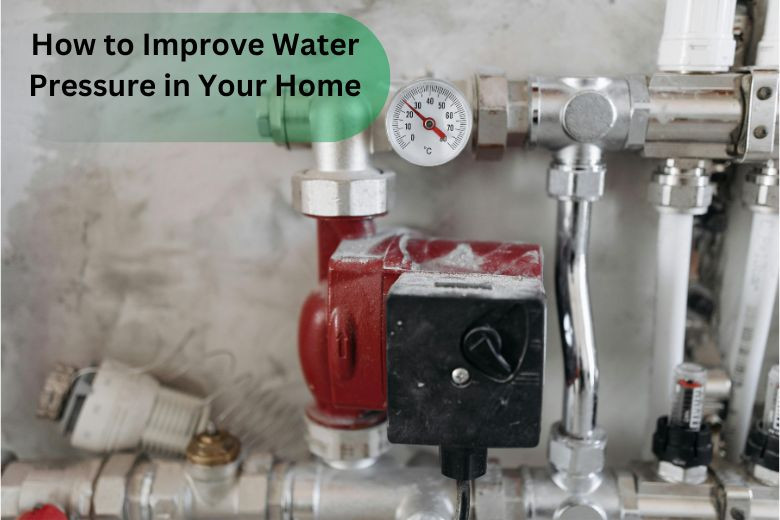How to Improve Water Pressure in Your Home
Posted on August 09, 2024 by Admin

Low pressure in water is going to drive you nuts from your shower experience to daily chores done at home. If you consider how to get a better, powerful force with your water at home, several steps will guide you through this common problem. Gaining knowledge of how to improve the water pressure might mean to have a more effective, satisfying flow all over the house.
Check for Blockages
Check for blockages in your plumbing. On top of the list on how to improve water pressure, it would include sediments, mineral deposits, and other particles that settle into pipes and fixtures over time and narrow them out until they have almost constricted the flow of water. You may want to begin by checking and cleaning your aerators and showerheads. Actually, these minute parts clog up pretty often, and they will restrict the pressure of your water. If this does not work, you may then have to hire a professional plumber who will inspect the pipes for internal clogs.
Check the Water Supply Line
Check the condition of your water supply line for better water pressure. Suppose your supply line is damaged or partially turned off; in such a case, your house will have low volumes of water. Checking at the main shutoff valve and any supply valves that they are fully open and functioning will make the desired difference. In case the valves malfunction, their adjustment or replacement can raise the household water pressure.
Upgrade Your Fixtures
Outdated or ineffective fixtures can sometimes cause this low pressure. Replacing these with newer, more effective faucets and showerheads can dramatically improve pressure. The design for most of the new fixtures is such that it would exert more powerful flows even if the pressure is low. Thus, replacing them with high performance ones may be able to produce better water pressure and hence a better experience.
Check for Leaks
This can be greatly affected by leakage in the plumbing system. Check for leaks in your home: Look for damp spots, water stains, and unusual noises that seem to signal a leak. One wastes a great deal of water because of leaks, and hence the pressure is reduced. In case of detection of the same, ensure that such leaks are restored to the proper pressure in quick time. Proper maintenance and timely repairs avoid development of further problems with the water flow due to leakage.
Consider a Pressure Regulator
One may be installed if the water pressure is extremely high or fluctuates in your home. The device that controls how much water pressure is entering your house makes sure that it does not rise more or less than what is considered safe and optimal. This adjustment will control very high or very low pressures, maintaining constant water pressure in your plumbing system.
Call a Professional Plumber
If these tips do not help and you still have low water pressure, then it is time to seek professional help from a plumber. It will check your plumbing system in minute detail to discover actual problems that are reducing pressure in the system. Be it pipe repairs or system upgrade, professional help will make sure that you effectively enhance water pressure and reinstate optimal performance.
Must Read : The Benefits of LED Lighting for Home and Business
Conclusion
Check for blockages, lines in your water supply, fixture upgrades, and fix leaks—the steps that will enhance the water pressure in your home. You will be better off with regard to water flow to have a nice experience. Feel free to involve a professional plumber for expert advice and solution in ensuring that your home's water pressure is always in top condition.
Faqs
-
1. What are some of the most common causes of low water pressure in a home?
Commonly, the cause of low water pressure can be blockages in pipes or fixtures, undetected leakage within the pipes, partially turned or faulty water supply shutoff valves, dated or inadequate flow rate fixtures, and problems with the municipal main water supply line.
-
2. How do I inspect my plumbing for blockages?
Check for blockages: Check your faucet aerators and showerheads; clean them if needed. If this doesn't help the pressure of water, then you may need to hire a professional plumber who can inspect the internal pipes for sediment or other particles.
-
3. How does a pressure regulator help in improving the pressure of water?
A pressure regulator at the intake keeps the pressure of the water entering your home within a safe and optimal range. This allows it to second-guess the inconsistencies of water pressure to avoid both extremely high and low pressure-related issues.
-
4. When should I consider upgrading my fixtures to improve water pressure?
Consider replacing old or inefficient fixtures. Because modern, high-efficiency faucets and showerheads are designed to deliver a stronger flow at lower pressure levels, they will help increase the water pressure throughout the house.
Recent Post
- Top Plumbing Service Providers in Arizona, USA
- Top 10 Electrician Service Providers in Alabama, USA
- Top 20 Roof Repair Service Providers in Alabama, USA
- The Role of Roof Insulation in Energy Efficiency: Tips and Tricks
- Understanding Roof Damage from Wildlife and How to Prevent It
- How to Choose the Best Roofing Contractor for Emergency Repairs
- Roofing Maintenance for Historic Homes: Preserving Architectural Integrity
- The Importance of Proper Attic Ventilation for Roof Health
- How to Identify and Prevent Roof Mold and Mildew
- The Best Practices for Removing Snow from Your Roof